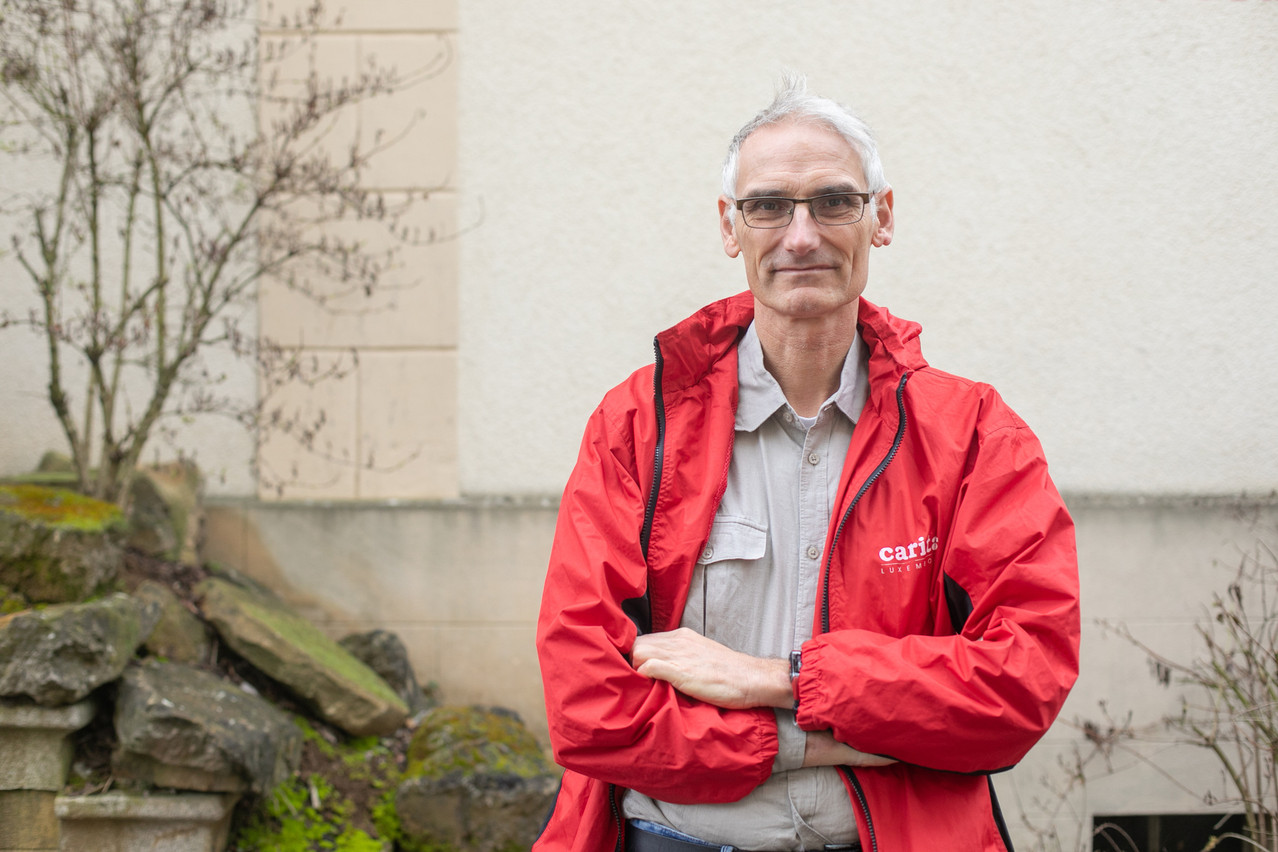Michael Feit has been in Ukraine since last Sunday. He is the director of the international cooperation department of Caritas Luxembourg and has been active within the organisation for 26 years. As Feit was not allowed to stay longer for security reasons, he will return to the grand duchy this Thursday [23 February]. Before his return, he took stock of the situation on the ground.
What was the purpose of your visit to Ukraine, a few days before the one-year anniversary of the war?
Michael Feit: We have been working in Ukraine since 2014. We stopped for a while, but we started again after the war broke out on 24 February 2022. This is the third time I have been to Ukraine since the war started. I usually go to the west, but this time we are in Kyiv.
What are your missions there?
MF: We are finishing the winter aid project. It’s a project to rebuild houses and buildings. We have also done a lot of distribution of wood, food, clothes... The ministry of foreign affairs has given us the possibility to continue the reconstruction project. That’s why I’m here: to define what we will do in the coming months and in which region. It is also a way of showing our solidarity with the Ukrainian people and our partners there. I could have chosen to stay in the warmth and safety of my home and do this by video conference, but no, I wanted to come to show that we have not forgotten them, that we are with them.
What is the situation in Kyiv today?
MF: You must not imagine that Kyiv is completely at a standstill. It’s a big city that still lives more or less normally. There are still cafés, restaurants... Here, you don’t feel the war too much, but you live to the rhythm of air alerts. For example, this morning, there was an alert. We had planned a meeting with our colleagues, so we did it in the shelter of the metro station. This is something that happens almost every day. Another specificity is the curfew, from 11pm to 5am. The third difficulty is the power cuts.
Desire and joy no longer exist in cities like Bucha.
But the situation is more tense elsewhere...
MF: Yes, we also worked near the border with Belarus, as well as in Bucha, Irpin, Chernobyl... These are the areas that were occupied during the first six weeks, there was a lot of destruction. In these areas, the situation is completely different from Kyiv. There is no smile on the faces. There is a deep sadness. Russian tanks are still there, exposed. Desire and joy no longer exist in cities like Bucha. The events are still very present. There is psychotherapy work to be done there. As for the east of the country, we cannot access it at all, it is still far too dangerous.
What is the state of mind of the Ukrainians you met there?
MF: In Kyiv, people don’t seem to be panicking at all, but they are dreading 24 February. They are afraid for their friends, for their family, for their neighbours who are in the army. They are also afraid of receiving a summons to go and fight. There is a sense of normality in the disaster, you can work, live, receive care. They have somehow adapted to the situation. They don’t give up, because they can’t afford to. People need attention, support, but they are not yet tired of fighting and living in these conditions. Most of them are still motivated. Joe Biden’s visit on Monday has raised hopes for a victory. They do not expect the fighting to stop, but they are ready to go all the way.
What are their needs?
MF: We visited many families yesterday and the day before who lived in the areas where the Russians destroyed the houses. People came back quite quickly, and they had a hard winter. They needed windows repaired, roofs repaired, some wood for heating. People only ask for the minimum to survive. Often they say “give me a little, but keep it for others.” Some of them live with a disability, there are also very old people, single women with their children... They need more social than financial or material help. This will be the objective of our next programme.
Read also
What will Caritas Luxembourg do next in Ukraine?
MF: Until now, we have been working in an emergency situation. It was about providing food and warmth to survive. We will also continue the reconstruction in the liberated areas, but now the situation is a bit different. We want to help people to plant, for example, by providing them with seeds. We also want to help them get back to earning a salary, to earning an income. For example, for a hairdresser, we would give her the equipment she needs to start her business again. And then, above all, we are going to take care of people in social distress, propose a return to school, activities for young people...
How much aid have you provided since the beginning of the conflict?
MF: We have already received about €3m in donations in Luxembourg. A small part has been used for Ukrainian refugees in Luxembourg, but also for those in Moldova. In total, we have so far committed over €2m. The idea is not to spend it all, and to keep a reserve. We are making sure that the money is used in the right way, i.e., to improve security.
This story was first published in French on . It has been translated and edited for Delano.

